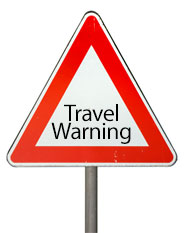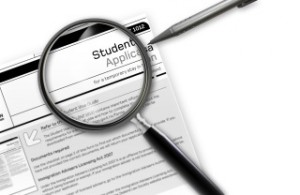 If this is your first time researching international health insurance, it’s more than likely an overwhelming experience. When searching through the long list of benefits and exclusions, find a plan that has the following must-have insurance benefits:
If this is your first time researching international health insurance, it’s more than likely an overwhelming experience. When searching through the long list of benefits and exclusions, find a plan that has the following must-have insurance benefits:
Keep in mind that this is just a list of must-have benefits to start from. Find a plan that will also meet your own personal needs and any governmental or school benefits you need to have.
 While studying abroad can seem exciting at first, you may realize soon after your arrival that you are distressed and sad about leaving home. After all, everything normal and routine is gone. Your family and friends are far away. And you may find yourself having a more difficult adjustment than you expected. Here are 5 strategies to help you deal with this:
While studying abroad can seem exciting at first, you may realize soon after your arrival that you are distressed and sad about leaving home. After all, everything normal and routine is gone. Your family and friends are far away. And you may find yourself having a more difficult adjustment than you expected. Here are 5 strategies to help you deal with this:
1. Acknowledge Your Feelings
So maybe you think you are invincible? That you can set your mind to anything and achieve it. You know what? You still are and you still can! But in order to be successful, you have to acknowledge your feelings before you are able to do something about it.
2. Get Involved
Many international students report feeling homesick because they do not feel part of the community and they may not have the same support system they have back home. It’s important to take charge, think about what you like to do – and get involved. Many college campuses have a number of organizations and clubs – not to mention activities – going on all of the time. Join clubs, go out (even if you don’t want to!), and start meeting people.
3. Explore Your New Home
Everything may seem foreign – the food, the culture, the surroundings, and what better way to feel comfortable than to hit it straight on? Ask a friend – or someone you just met – to come with you to explore your new city or town. You can even ask someone from the area to go with you. This will allow you to get comfortable and familiar, and perhaps love your new environment!
4. Keep In Touch
Just because there is distance between you and your loved ones, your communication doesn’t have to be. Technology has done wonders, and there are so many tools that can connect you with your family and friends. With Skype, Google Hangout, Facebook, Twitter, Instagram, Google +, and Pinterest, there are plenty of ways to minimize the distance.
5. Talk To Someone
Talking out your feelings and emotions can be very therapeutic. It can be a friend, an advisor, a family member, or someone who can lend an ear. Sometimes we all just need to talk it out and we might already start feeling better.
Want more information? For related articles, check out our article on Culture Shock for International Students.
 The December 2013 travel warnings are a listing of any warnings that have been posted by the US Department of State in the month of November, warning travelers who plan to visit those countries. Remember to exercise extra care if you are visiting these countries, and check with your travel insurance provider to make sure you still have coverage in place – sometimes some benefits can be excluded for countries under a travel warning.
The December 2013 travel warnings are a listing of any warnings that have been posted by the US Department of State in the month of November, warning travelers who plan to visit those countries. Remember to exercise extra care if you are visiting these countries, and check with your travel insurance provider to make sure you still have coverage in place – sometimes some benefits can be excluded for countries under a travel warning.
Countries listed through the month of November 2013 include:
Venezuela – November 22nd, 2013
Tens of thousands of foreign visitors safely visit Venezuela each year for study, tourism, business, and volunteer work. However, violent crime in Venezuela is pervasive, both in the capital, Caracas, and in the interior. According to the non-governmental organization Venezuelan Violence Observatory (VVO), there were 21,692 homicides in Venezuela in 2012, amounting to a rate of 73 homicides per 100,000 inhabitants, among the highest in the world. In Caracas, the homicide rate is even higher at 122 homicides per 100,000 inhabitants. Therefore, the Department of State has issued this Travel Warning to inform citizens about the security situation in Venezuela.
Iran – November 21st, 2013
Even though the situation in Iran seems to be improving month-by-month, there are some elements of Iran that still remain very hostile to foreign visitors. As a result, some visitors may be subject to harassment or arrest while traveling or residing in Iran, therefore the Department warns citizens to carefully consider the risks of travel to Iran.
Korea, Democratic People’s Republic of – November 19th, 2013
Travel to North Korea is not routine, and citizens crossing into North Korea, even accidentally, have been subject to arbitrary arrest and long-term detention. Since January 2009, four U.S. citizens have been arrested for entering North Korea illegally, and two U.S. citizens who entered on valid DPRK visas were arrested inside North Korea on other charges. Because of this threat, travel is therefore not advised to this region.
Eritrea – November 18th, 2013
The Eritrean government continues to restrict the travel of all foreign nationals and these restrictions require all visitors and residents, including diplomats (who must apply 10 days in advance) for permission to travel outside Asmara’s city limits. Therefore, because embassy access is limited to the city limits, their ability to provide support is also limited and thus travel is not advised at this time.
Central African Republic – November 14th, 2013
The Department of State warns against all travel to the Central African Republic (CAR) and recommends that those who remain in CAR depart immediately by taking advantage of existing commercial flights. Those who have decided to stay in CAR despite this warning should review their personal security situation and seriously consider departing.
Egypt – November 6th, 2013
Political unrest, which intensified prior to the constitutional referendum in December 2012, the anniversary in 2013 of Egypt’s 25th January Revolution, and the July 2013 change of government, shows little sign of abating. Demonstrations have, on numerous occasions, degenerated into violent clashes between security forces and protesters, and between protesters supporting different factions, resulting in deaths, injuries, and extensive property damage. For this reason, it is advised to defer all travel to Egypt until the situation improves.
While traveling, please keep these travel warnings in mind. Travelers are also advised to enroll through the U.S. Department of State’s Smart Traveler Enrollment Program (STEP) to stay up to date on travel security information.

For new international students in the USA, this week marks probably the first major holiday in your calendar with Thanksgiving. To many students, this will be a totally new event and you may not have celebrated it before, but in short its a big deal in the USA. Some would even say that Thanksgiving is bigger than Christmas, but to get all the low-down on the holiday we suggest you check out this excellent blog post on our sister site InternationalStudent.com.
So now that you know more about the holiday, you will have probably also noticed that most things will close down (including school) and for some students it can be an excellent time to travel around, either in the USA or abroad.
Whenever you travel abroad, you need to make sure you have the right travel insurance protection. For example if you are from Europe, you have most likely traveled through Europe before and with the EHIC, you can often obtain health care via a reciprocal agreement with your home country. While advisable to always purchase more protection, you have the basic medical needs taken care of. In the USA, because these type of agreements do not exist you will need to make sure you are fully covered when you travel abroad – either to Canada, Mexico or in fact anywhere abroad.
However, if you have an international student health insurance plan you will most likely find that they will cover you abroad not only during your time in the USA, but other countries too. For example, our two most popular plans (Student Secure and Atlas Travel) will cover you anywhere in the world outside of your home country. So you can travel abroad during your stay in the USA and still be covered.
So in short, in most cases you will not need to purchase travel insurance if you do go abroad during the holiday period – but always check with your insurance provider first as plans do vary!
Happy Thanksgiving!

Since launching our first Euro based travel product over a year ago, the response and feedback from clients has been overwhelming positive that there are more travel options for them to choose from – either for those that are traveling from Europe and are used to € Euro benefits and pricing, or from those that are planning to travel to European countries. We are therefore proud to launch our new Europe Travel Insurance plan, with even more choice for our customers.
The new product offers all this and more:
Of course, the plan benefits are also there to match – including coverage for doctors visits, hospitalization, intensive care treatment, emergency local ambulance, evacuation and repatriation. To view the full plan benefits, please either visit the benefits page or download a copy of the brochure for more information.
The new European Travel Insurance plan is better than ever – so please consider it the next time you travel abroad!
 The November 2013 travel warnings are a listing of any warnings that have been posted by the US Department of State in the month of October, warning travelers who plan to visit those countries. Remember to exercise extra care if you are visiting these countries, and check with your travel insurance provider to make sure you still have coverage in place – sometimes some benefits can be excluded for countries under a travel warning.
The November 2013 travel warnings are a listing of any warnings that have been posted by the US Department of State in the month of October, warning travelers who plan to visit those countries. Remember to exercise extra care if you are visiting these countries, and check with your travel insurance provider to make sure you still have coverage in place – sometimes some benefits can be excluded for countries under a travel warning.
Countries listed through the month of October 2013 include:
Democratic Republic of Congo – October 24th, 2013
The Department recommends you avoid all travel to the city of Goma and the province of North Kivu, and all but essential travel to the province of South Kivu and the Ituri region in the province of Orientale. With ongoing instability and violence in North and South Kivu, northeastern Orientale, and northern and central Katanga province, the Department’s ability to provide consular services to U.S. citizens in these regions of the DRC is extremely limited.
Republic of South Sudan – October 22nd, 2013
The Department of State strongly recommends that you avoid all travel to the states in the border region between Sudan and South Sudan (Upper Nile, Unity, and Western Bahr el Ghazal states in South Sudan; Southern Kordofan and Blue Nile states in Sudan; and the Abyei Special Administrative District). Although fighting between Sudan Armed Forces (SAF) and the Sudan People’s Liberation Army (SPLA) has declined since spring 2012, the potential for troop build-ups along the border and renewed fighting remains.
Sudan – October 11th, 2013
The Department of State urges travelers to avoid all travel to the Darfur region of Sudan, the Blue Nile and Southern Kordofan states, and advises you to consider carefully the risks of travel in other areas of Sudan. On September 14, 2012, the U.S. Embassy in Khartoum was attacked during a protest demonstration, resulting in a six-month ordered departure of all non-essential staff and accompanying family members.
Burundi – October 11th, 2013
The Department of State warns of the risks of traveling to Burundi, reiterating existing security concerns and notes the security restrictions on travel for Embassy personnel remain in place. Because Burundi participates in peacekeeping operations in Somalia, the terrorist organization al-Shabaab, based in Somalia, has threatened to conduct terror attacks in Burundi. It may also target U.S. interests in Burundi.
Colombia – October 11th, 2013
The Department of State has issued a Travel Warning for Colombia to inform travelers about the security situation in Colombia. Security in Colombia has improved significantly in recent years, including in tourist and business travel destinations such as Bogota and Cartagena, but violence linked to narco-trafficking continues to affect some rural areas and parts of large cities.
Chad – October 10th, 2013
The Department of State warns of the risks of travel to Chad and recommends avoiding travel to eastern Chad and border regions. Travelers should be particularly vigilant when visiting hotels, restaurants, markets, and easily accessible public areas that expatriates and foreign travelers frequent.
Lebanon – October 9th, 2013
The Department of State urges travelers to avoid all travel to Lebanon because of current safety and security concerns. The potential in Lebanon for a spontaneous upsurge in violence remains. Lebanese government authorities are not able to guarantee protection for citizens or visitors to the country should violence erupt suddenly.
Syria – October 7th, 2013
The Department of State continues to warn against travel to Syria and strongly recommends that those remaining in Syria depart immediately. The security situation remains volatile and unpredictable as an armed conflict between government and anti-government armed groups continues throughout the country, along with an increased risk of kidnappings, bombings, murder, and terrorism.
Tunisia – October 4th, 2013
The Department of State warns of travel to Tunisia as a “state of emergency” declared by the government of Tunisia remains in effect, and the U.S. Embassy continues to operate with limited staffing due to security concerns. On September 14, 2012, violent mobs caused extensive property damage during an attack on the U.S. Embassy and the American Cooperative School of Tunis.
Democratic People’s Republic of Korea (North Korea) – October 1st, 2013
The Department of State continues to warn travelers about visiting North Korea (Democratic People’s Republic of Korea, or DPRK). Those crossing into North Korea, even accidentally, have been subject to arbitrary arrest and long-term detention. Since January 2009, four U.S. citizens have been arrested for entering North Korea illegally, and two U.S. citizens who entered on valid DPRK visas were arrested inside North Korea on other charges.
While traveling, please keep these travel warnings in mind. Travelers are also advised to enroll through the U.S. Department of State’s Smart Traveler Enrollment Program (STEP) to stay up to date on travel security information.
 Yesterday saw the release of the 2013 Open Doors Report on International Education Exchange, which charts the development of international student and study abroad enrollment in the USA.
Yesterday saw the release of the 2013 Open Doors Report on International Education Exchange, which charts the development of international student and study abroad enrollment in the USA.
It is released each year to coincide with International Education Week (11th to the 15th November 2013) and this year it has shown a large increase in the number of international students who are studying in the USA and International Student Numbers in the USA Continue to Grow. Overall the total number of international students increased 7% to a record high of 819,644 students and the number of US students who are studying abroad increased by 3% to 283,000 – this was an increase from 2012 when growth was only 1%.
Digging deeper into the report and we can see where the students are coming from – with China growing their student numbers in the USA by 21.4% to take the top spot with 235,597 students. Second place goes to India with 96,754 international students (a decrease of 3.5%) and South Korea with 70,627 (another decrease of 2.3%).
The growth in 2013 has come from the likes of China, Saudi Arabia (with an increase of 30.5% from 2012) and Brazil (an increase of 20.4% from 2012). The latter two countries have had large government run scholarship programs over the last year, which has driven the numbers up from those countries in particular.
For more information about the report, please visit:
http://www.iie.org/Research-and-Publications/Open-Doors/Data

All international students know the stressful feeling of applying for and interviewing for an F1 student visa. Many students prepare for months, only to be denied their visa. The truth of the matter is that on paper, you might meet every qualification, but if you don’t have the right answers for your interviewer and be able to say them with substance and sincerity, you will not succeed. Here is a list of 10 things not to do during your interview:
You are required to schedule and attend your interview before you can be granted an F1 visa.
You must bring the following documents with you to your interview:
Your interviewer will ask questions regarding your study plans. Does your major have to do with your previous studies or work from your home country? Make sure you can explain your goals to the consular officer.
To be granted an F1 visa, your choice of university must be carefully calculated. You must consider the caliber of the program you will enter as well as your living arrangements, and be able to prove your preparedness.
Can you be successful in a US university? Additional documents may be requested to prove your eligibility for the F-1 student visa, including academic transcripts, diplomas, degrees, or certificates. Test scores such as the TOEFL, SAT, GRE, or GMAT may also be requested.
The most important factor determining your eligibility for the F1 visa is your ability to finance your entire program of study, including tuition and fees, room and board, transportation, travel, health insurance, and all other relevant expenses.
The F1 visa is granted to students who have strong ties to their home country that will lead to their return to their home country after their studies are complete. This could include family, property, or even a job offer.
If, for any reason, your interviewer believes that you are being dishonest, you can be denied your F1 student visa.
You must demonstrate cultural sensitivity and the ability to adapt and live in a different culture than your own. You must be open to new experiences.
If you are well-prepared for your interview, there is no need to be nervous during your interview. Make sure you have all of the required materials so that you can answer all of your interview questions with confidence.
Now that you know what not to do, it is time to start preparing for what you should do! Be sure to check out all of our F1 Student Visa articles too for more guidance regarding your F1 student visa.
 For most international students, OPT is an excellent way to get further experience, but also to get their foot in the door at a US company. To learn more about what OPT is, please visit our insurance explained section where we have a range of articles that cover all areas of OPT in more depth. But for students looking to apply, here are our top 5 tips for you to follow:
For most international students, OPT is an excellent way to get further experience, but also to get their foot in the door at a US company. To learn more about what OPT is, please visit our insurance explained section where we have a range of articles that cover all areas of OPT in more depth. But for students looking to apply, here are our top 5 tips for you to follow:
For more information on applying for OPT, please check out our how to apply for OPT section.